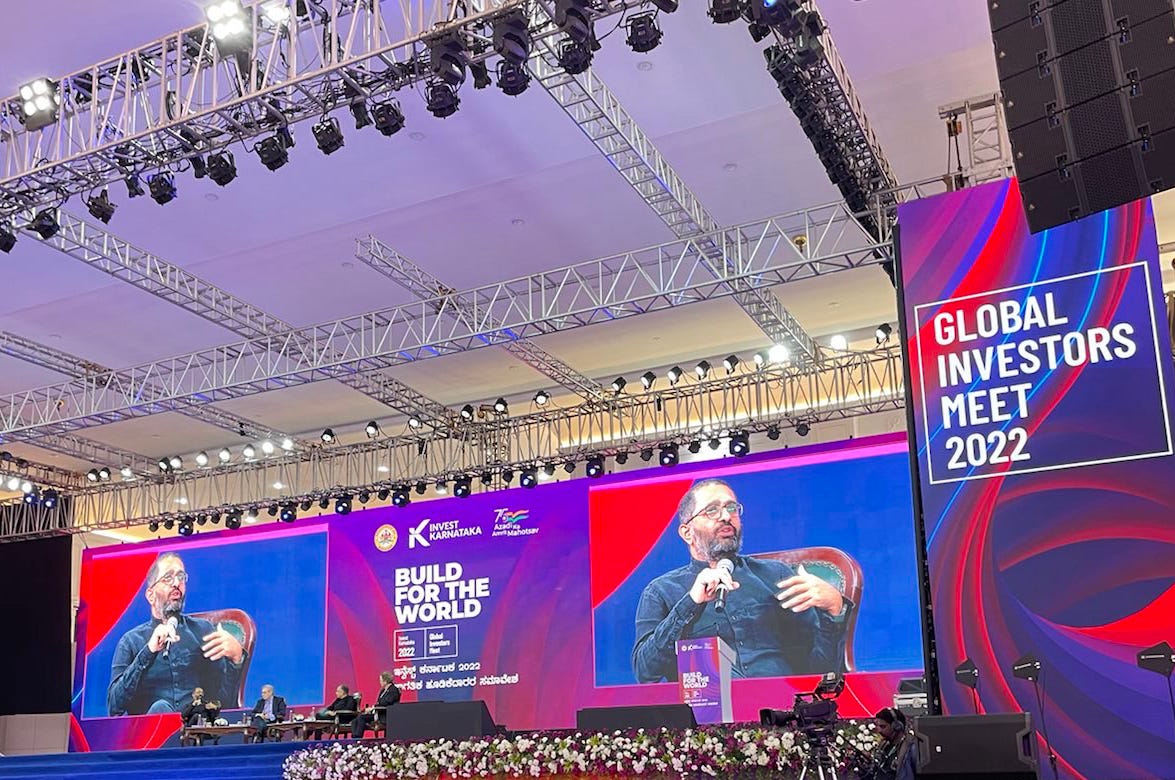India’s Human Spaceflight Programme
Dear Reader,
We hope you are doing well. In this edition, we bring to you our latest work on building space stations for India’s human spaceflight programme, the costs of allowing UPI to remain free, combating global polycrisis in today’s world, and the success and limitations of sportswashing.
India’s Human Spaceflight Programme
India announced its first human spaceflight programme called Gaganyaan in August 2018. The next step for India would be to construct a space station for long-term human habitation.
Our latest publication, ‘Examining the Opportunities and Challenges for India’s Human Spaceflight Programme’, authored by Pranav R Satyanath, argues that based on space policy priorities, technological capabilities and past cooperation, there exists collaborative potential between the Quad countries for building a space station. However, the possible extent and degree of collaboration with India vary across the U.S, Japan and Australia.
As per the analysis, India can advance its human spaceflight programme and strategic interests in outer space through any of the following options:
India-Japan-Australia space station, where the 3 countries work together as symmetric partners.
India collaborates with other potential partners, in an arrangement where Japan is a symmetric partner and Australia is a minor participant.
India collaborates with a commercial entity, preferably one of the U.S.-based companies.
India pursues an independent space station.
India abandons its space station ambitions, and instead, purchases time and services on others’ space stations.
Should UPI Remain Free?
United Payments Interface or UPI has revolutionised digital payments in India. Under a zero-charge framework mandated by the Reserve Bank of India, UPI remains a free mode of payment transactions which adds to its popular utility and acceptance. However, in an article for The Quint, Rohan Pai and Mihir Mahajan argue that the zero-charge mandate needs to go for enabling innovation and competition in the payments space:
Liberalising the regime to provide avenues for competition in each layer of UPI – user-facing apps, middleware connecting apps to banks, and termination points at banks - can further improve India’s digital payments infrastructure. For example, allowing competition to NPCI in operating payment gateways, or to banks through digital-only bank accounts (or other UPI-capable accounts) can help address UPI’s limitations. Further, market participants can invest in technical infrastructure to improve transaction reliability and can use analytics to improve trust. They can also offer transaction insurance and enable high-value transactions, if allowed to charge for transactions.
Also, check out this Twitter thread from Rohan Pai which sums up the issues with UPI today:

Global Polycrisis and How to Face Them
Polycrisis has been used to describe a combination of crises whose “shocks are disparate, but they interact so that the whole is even more overwhelming than the sum of the parts. At times one feels as if one is losing one’s sense of reality.” In his column for the LiveMint, Nitin Pai argues that polycrisis is not new and revitalised hope can be used to counter it:
That is why we must be careful when we discuss the polycrisis in the public sphere. While it is certainly helpful, it is also dangerous. If the complexity leads people to conclude that our problems are intractable, then a resigned public could collectively surrender, let leaders off the hook, or fall under the sway of demagogues. On the contrary, knowledge that the polycrisis is an outcome of the dynamics of complex systems should make us optimistic. There are meaningful things we can do. In politics, step off brinks. On climate, include adaptation as a goal. In society, cultivate compassion. In economics, incorporate insights from cognitive sciences. As individuals, build resilience. In public discourse, fight anxiety with hope.
The Effectiveness of Sportswashing
‘Keep politics out of sports’ is an often-stated argument used by nation-states that are hosting sporting tournaments to suppress voices of dissent against their association with a sport or event. It is popularly called ‘sportswashing’. In last Wednesday’s episode of All Things Policy, Carl Jaison hosted Jaideep Vaidya, sports journalist at The Signal, to discuss sportswashing in the context of Qatar organising the FIFA World Cup 2022.
Nitin Pai, Director & Co-founder of Takshashila, Chaired a Session at the Karnataka Global Investors Meet 2022
Nitin Pai chaired a session on ‘India: Epicentre of Global Supply Chain Shift’ at the Karnataka Global Investors Meet 2022, on Thursday, November 4th. The other participants were William Blair (VP & Chief Executive India, Lockheed Martin), Hans-Paul Burkner (Chairman, BCG Global), and Jitendra Chaddah (VP, Country Head India GlobalFoundries).
The panel discussed the causes behind the ongoing shift in global supply chains, India’s comparative strength and weakness in exploiting emerging opportunities and the potential of investing in human capital and institutions, as a strategy for India’s success.
Applications for PGP Programme are Now Open
The Post-Graduate Programme in Public Policy (PGP Programme) is a 48-week multi-disciplinary, specialised programme, designed for students who wish to gain a deeper understanding of the theoretical and empirical approaches to public policy.
The PGP Programme is suitable for working professionals who are in the public policy space or are looking to explore a career in public policy while pursuing current occupations. Prior work experience of 2 years is a desirable criterion for admission. The PGP programme will equip students with the necessary skills of policymaking, analysis, persuasion, and communication in their desired career choice.
The last date for early bird application is December 20, 2022!
That’s all from us in this edition. Take care.



